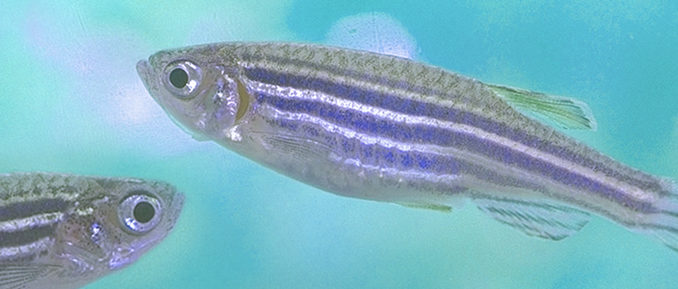
The factors contributing to the development of cancer in an individual are often complex and varied. Sometimes they are more straightforward, like when someone carries a specific gene known to indicate cancer risk; for example, specific mutations of BRCA1 or BRCA2 are linked to breast cancer. But usually, these risk factors are not so directly observable, making cancer risk detection—and possibly even cancer prevention—difficult. Any insights into what leads into the development of cancer are therefore critical.
It’s not just the message encoded in the genetic sequence that is important. Since cellular machinery uses genes as a blueprint for the production of proteins, not just what it reads, but also how likely it is to actually access the sequence is important.
Possible epigenetic changes such as methyl groups attached to the DNA can hinder or facilitate access to the code, affecting the efficacy of its messaging being turned into actual proteins. Another way of looking at this is that if a person contains a gene that predisposes them to cancer, but the physical orientation of the gene makes it inaccessible for transcription and translation in the body’s cells, it will likely not result in a cancer outcome.
Studying epigenetics offers a different angle on genetic inheritance
This opens up new questions. When do epigenetic changes typically occur? What makes them take place? What mistakes can happen? Despite its importance, epigenetics has only emerged fairly recently as a field of extensive study, and so many such questions are unanswered.
Model organisms, such as the zebrafish, can be used since they share a lot of the same genetic material as humans but reproduce more quickly, and can be observed in larger numbers and consistent conditions across multiple generations.
But we have just gained some powerful insights from researchers at the Garvan Institute of Medical Research.
The embryonic shutdown of genes linked to certain cancers differs across species.
Zebrafish—a classic model organism—inherit the paternal methylome, unlike in mammals.
Researchers took primordial germ cells, which are precursors to sperm in males and eggs in females, from zebrafish embryos and used bisulfite sequencing to characterize DNA methylation across the entire genome. In zebrafish, the father’s methylation pattern is conserved, in stark contrast to how this functions in humans.
Mammals—not just humans—’reset’ their DNA methylation patterns within the first week of fertilization, since this allows maximum access of genetic material as the embryo starts to differentiation into various different cell types. A second wave of DNA methylation does not occur in humans until sometime between the third and seventh week, once cell differentiation is well on its way.
DNA methylation an epigenetic mechanism involving the addition of methyl groups to the DNA. This process often results in reduced gene expression, and plays an important role in tumorigenesis, aging, and other epigenetic diseases.
The discovery that this mechanism is not conserved across all vertebrate species sheds light on evolutionary mechanisms of genetic control. It also means that, while the study of possibilities for specific inheritance of methylation patterns across generations can be performed in zebrafish, they do significantly differ in some ways from humans, which must be factored into any epigenetics study performed in this common model organism.
Cancer testis antigens are silenced early via DNA methylation in both species.
Although differences in genome-wide methylation activity were shown between zebrafish and humans, this study showed that zebrafish silence cancer testis antigens (CTA) these very early on in development, just like humans—really, just like all mammals. In the case of zebrafish embryos, they get turned off as early as within twenty-four hours of fertilization.
This suggests that the control of CTA gene expression is conserved across species, which is a powerful finding in light of ongoing work to develop interventional and preventive therapies targeting CTAs.
Comparing species-specific patterns of epigenetic modification can inform how methylation patterns have evolved over time. A better understanding of the contributing factors to epigenetics will, in turn, let the scientific community better understand what contributes to cancer occurrence in individuals—and potentially how to prevent it.
Reference: Garvan Inst of Medical Research. “Ancient epigenetic changes silence cancer-linked genes.” July 12, 2019.
Source: Ksenia Skvortsova, et al. Retention of paternal DNA methylome in the developing zebrafish germline. Nature Communications10 (3054). 2019.

